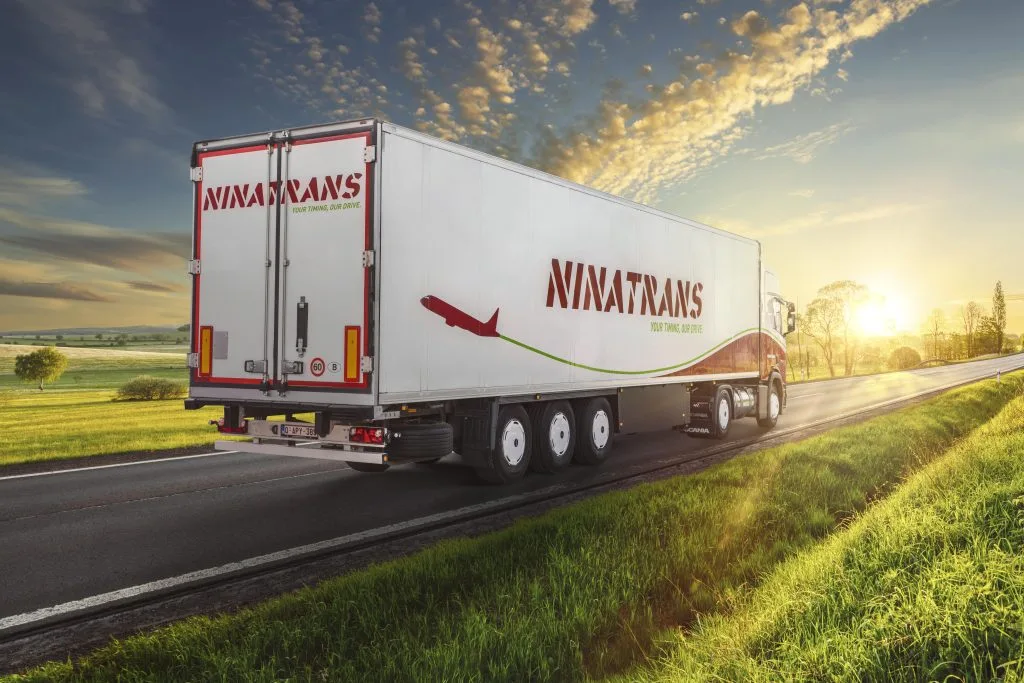Daha Yeşil Karayolu Besleme Hizmetlerine Yönelik İtmeyi Anlamak
Karayolu taşıma hizmetlerinin karbonsuzlaştırılması artık uzak bir hedef değil, günümüzün ulaşım ekosisteminde acil bir gerekliliktir. Aktarma hizmetlerinin hava, demir veya deniz yolu yük merkezleri ile nihai varış noktaları arasında kritik bağlantılar görevi gördüğü göz önüne alındığında, karbon ayak izleri lojistik zincirlerinin genel sürdürülebilirliğini önemli ölçüde etkileyebilir. Bu tartışma, emisyonları azaltmaya ve daha temiz bir ulaşım sektörünün önünü açmaya yönelik pragmatik stratejilere odaklanmaktadır.
Karayolu Aktarma Hizmetlerinin Modern Lojistikteki Rolü
Karayolu aktarma hizmetleri, ana taşıma modlarını birbirine bağlayarak ve kargo akışını kolaylaştırarak ilk ve son kilometre teslimat çözümleri için bir omurga görevi görür. Bu hizmetlerin önemi, hacimli ürünleri, paletleri ve konteynerleri kısa ve orta mesafelerde verimli bir şekilde taşımanın karmaşık sürecini göz önünde bulundurduğunuzda açıkça görülmektedir. Ancak, bu hizmetler genellikle dizel yakıtlı kamyonlara büyük ölçüde bağımlıdır ve bu da daha çevreci operasyonları hedeflerken bir zorluk teşkil etmektedir.
Karbonsuzlaşma Neden Burada ve Şimdi Önemli?
Besleme hizmeti emisyonları sadece sayılardan ibaret değil; sektörün çevresel ayak izini, şehirdeki hava kalitesini ve hatta işletme maliyetlerini yansıtıyor. Sıkılaşan çevre düzenlemeleri ve artan kamuoyu bilinciyle birlikte, hem göndericiler hem de taşıyıcılar kendilerini bir yol ayrımında buluyor: Filoyu modernize etmek veya geride kalma riskini göze almak.
Karbon Ayak İzini Azaltmaya Yönelik Pragmatik Çözümler
Sıfır emisyonlu filoları hayal etmek ideal hedef olsa da maliyet, altyapı ve araç bulunabilirliği gibi gerçek dünya kısıtlamaları eski usul pragmatizmi gerektiriyor. İşte bütçeyi aşmadan karbonsuzlaşmaya yönelik adımlar atılmasını sağlayacak pratik önlemlerin bir dökümü.
- Filo Elektrifikasyonu ve Alternatif Yakıtlar: Elektrikli araçlara (EV'ler) veya hidrojen veya biyoyakıtlar gibi alternatif yakıtlarla çalışan araçlara geçmek, karbon emisyonlarını önemli ölçüde azaltabilir. Ancak, altyapı hazırlığı ve araç mevcudiyeti ile senkronize olmak için kademeli bir geçiş akıllıca olacaktır.
- Rota Optimizasyonu ve Yük Maksimizasyonu: Rota algoritmalarını iyileştirmek ve kamyonların tam yüklü seyahat etmesini sağlamak, gereksiz seferleri ve yakıt israfını en aza indirebilir. Bu, verimliliği artırır, emisyonları azaltır ve genellikle teslimat sürelerini kısaltır.
- Araç Teknolojisi Geliştirmeleri: Aerodinamik tasarımlara, düşük yuvarlanma direncine sahip lastiklere ve bağlantılı araç teknolojisine yatırım yapmak zaman içinde kademeli ancak anlamlı emisyon tasarrufları sağlayabilir.
- İşbirliği ve Ortak Lojistik: Nakliyeciler ve taşıyıcılar arasındaki ortaklıkları teşvik etmek, yükleri konsolide edebilir, yinelenen seferlerden kaçınabilir ve sürdürülebilirlik çabalarını güçlendirebilir.
İhtirası Operasyonel Gerçeklerle Dengelemek
Yeşil devrim iddialı hedefler gerektirse de, taşıma hizmetleri sektörü benzersiz operasyonel zorluklarla karşı karşıyadır. Büyük veya özel yüklerin taşınması gerekliliği, genellikle elektrikli varyantlarda kolayca bulunmayan özel araç türlerini gerektirir. Ayrıca, filo yenileme yatırım döngüleri yavaş olma eğilimindedir ve bu da anında bir revizyonu gerçekçi kılmaz.
Tablo: Karayolu Besleme Hizmetleri için Karbonsuzlaştırma Yaklaşımlarının Karşılaştırılması
| Yaklaşım | Immediate Impact | Maliyet Etkisi | Altyapı Gereksinimi | Uygulama Karmaşıklığı |
|---|---|---|---|---|
| Electric Vehicles | Yüksek (Sıfır egzoz borusu emisyonu) | Yüksek başlangıç, düşük işletme | Şarj istasyonları gerekiyor. | Orta ila Yüksek |
| Alternatif Yakıtlar | Orta ila yüksek | Variable | Yakıt ikmal ağı | Medium |
| Rota ve Yük Optimizasyonu | Orta | Düşük | BT & yazılım sistemleri | Düşük ila Orta |
| Araç Teknik Yükseltmeleri | Artımlı | Orta | Minimal | Düşük |
Yük Taşımacılığı ve Lojistiğin Geleceği için Çıkarımlar
Karayolu feeder hizmetlerinin karbonsuzlaştırılması yolculuğu, doğrudan çevresel faydaların çok ötesine uzanan etkilere sahiptir. Lojistikte, daha çevreci operasyonlardaki inovasyon genellikle verimlilik, öngörülebilirlik ve maliyet yönetiminde iyileşmelere yol açar. Filolar daha temiz ve akıllı hale geldikçe, yük dağıtımı, nakliye güvenilirliği ve genel sürdürülebilirlik üzerindeki kümülatif etki derindir.
Üstelik, düzenlemeler sıkılaştıkça ve müşteri beklentileri arttıkça, pragmatik karbonsuzlaştırma çabalarına kendini adamış şirketler, piyasa güvenini kazanmak ve rekabet avantajı elde etmek için iyi bir konumda olacaktır. Akıllı hamle yapanlar, her parlak yeni teknolojinin peşinden koşmadan yeniliklerden yararlanacak ve benzersiz operasyonel ayak izlerine uygun dengeli bir yaklaşım benimseyecektir.
GetTransport.com Yeşil Bulmacanın Neresinde Yer Alıyor?
GetTransport.com gibi platformlar, evden eve nakliyat ve büyük mobilya taşımacılığından araç ve kargo taşımacılığına kadar her boyutta ve türdeki sevkiyata hitap eden erişilebilir, uygun fiyatlı ve küresel taşımacılık çözümleri sunarak bu değişimi mümkün kılıyor. GetTransport.com, verimli lojistik bağlantılarını kolaylaştırarak, yük hareketlerini düzene sokmaya ve rota verimliliğini artırmaya yardımcı olarak daha çevreci lojistik uygulamaları için bir zemin hazırlıyor.
Kargo Taşımacılığında Bilinçli ve Uygun Maliyetli Seçimler Yapmak
Gün sonunda, ne kadar parlak yorum veya açık istatistik olursa olsun, lojistik ortakları seçerken kişisel deneyimin yerini tutamaz. Neyse ki GetTransport.com, şeffaf fiyatlandırma ve dünya çapında çok çeşitli taşıyıcı seçenekleriyle desteklenen kargo taşımacılığını güvenle rezerve etmeleri için göndericileri ve işletmeleri güçlendiriyor.
Bu kolaylık sadece zahmeti azaltmakla kalmayıp aynı zamanda müşterilerin maliyetleri ve operasyonel verimliliği optimize etmelerini sağlar; yani gereksiz ücretlerle cepleri doldurmak veya altından kalkamayacakları işlere girişmek zorunda kalmazlar. Palet, konteyner veya hacimli eşya taşımacılığında, platformun esnekliği ve güvenilirliği, kara yolu feeder hizmetlerinin etkin bir şekilde karbonsuzlaştırılması için gereken pragmatik yaklaşımla mükemmel bir şekilde uyum sağlar. Yolculuğunuzu ayırtın üzerinde GetTransport.com Bugün!
Özet: Pragmatik Bir İlerleyiş Rotasında Seyretmek
Karayolu dağıtım hizmetlerinin karbonsuzlaştırılması, teknolojik olasılıkları finansal ve operasyonel gerçeklerle dengeleyen karmaşık bir girişimdir. Pratik filo elektrifikasyonu, daha akıllı rota planlaması, araç teknolojisi iyileştirmeleri ve işbirlikçi lojistik uygulanabilir bir çözümün temel taşları olarak ortaya çıkmaktadır. Bu, yalnızca son nokta ve dağıtım segmentlerinin karbon ayak izini küçültmeye yardımcı olmakla kalmayıp, aynı zamanda genel teslimat verimliliğini ve güvenilirliğini de artırır.
Lojistik operatörleri, bu pragmatik stratejileri benimseyerek rekabetçi hizmet seviyelerini korurken çevresel hedeflere ulaşmak için daha donanımlı hale geliyor. Bu gelişen ortamda GetTransport.com gibi platformlar, yük, koli, palet ve hacimli gönderilerin sevkiyatını, nakliyesini ve dağıtımını kolaylaştıran uygun fiyatlı, çok yönlü ve küresel çözümler sunarak çok önemli bir rol oynuyor. Sonuç olarak, bu yolda pragmatik bir şekilde ilerlemek, bizi gelecek için kusursuz, sürdürülebilir ve güvenilir bir ulaşıma daha da yaklaştırıyor.

 Karayolu Besleme Hizmetlerinin Karbonsuzlaştırılmasına Yönelik Pragmatik Bir Strateji, Ulaşım ve Lojistiği Nasıl Şekillendiriyor?">
Karayolu Besleme Hizmetlerinin Karbonsuzlaştırılmasına Yönelik Pragmatik Bir Strateji, Ulaşım ve Lojistiği Nasıl Şekillendiriyor?">